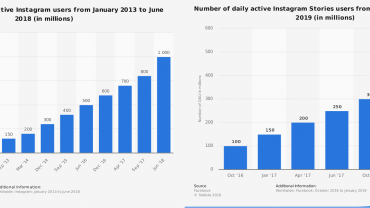Living in a digital world makes it impossible to deny and not bound to new technologies. Digital natives, and not only, don’t know how to live without the use of technologies. Neither do older generations. Have you ever tested being without access to the internet for a day or two? Or having your phone away for a few hours? If these ideas seem impossible to you it means you are the biggest majority of the population that can no longer live without the new technologic equipment.

Don’t be surprised if you felt uncomfortable with the previous ideas. Societies tend to adapt to what they have and the Digital Era is not only inevitable but also undeniable. Due to these circumstances, it is mandatory to know how to adapt to the new opportunities and also dangers brought by these new devices and their functions.
More and more, kids from an early age, want to be connected to the online world. They want mobile-phones, computers, laptops, tablets, for no matter what purpose. Parents are, most of the time, seduced to resist and give children most of these. Why? These reasons vary from parents to parents but most of the time they also want to be able to reach their children earlier. When a parent allows a kid to access the internet, for instance, there are new opportunities that come with the devices but there are dangers, as well.
The importance of protecting kids from and on social media is imperative to the new way of educating a child. However, most of the time, parents don’t know how to do it or they aren’t concerned about it.
Here are 10 tips to maintain a sense of vigilance and security towards the youngest ones when it comes to social media.
1. Educate yourself about social media
Maybe, you still remember when only MySpace or Facebook was famous. Nevertheless, the time has passed by and nowadays there are way more social media than before. As a parent, it is important to familiarize yourself with what websites are about and if they are appropriate to children. Whatsapp, Facebook, Messenger, Instagram, Tik Tok, Snapchat, Tumblr, Reddit, Discord, ask.fm and so many more are tempting kids to share personal details and information. It is good to have an idea about what is popular amongst children and what are these apps for.
2. Establish an age limit for when your child can start having social media and which one
While you are processing all the information about what social media and what kind of platforms are famous, you should pay attention to what the minimum required age is for each website. Most of the social media platforms require users to be older than 13 or even older to create an account. If they are younger, they need permission from the parents to use it.
Children and teenagers tend to lie about their ages in order to create accounts on social media. Be careful when that happens. Show to your kid the reasons why he or she is still too young to have a determined social media platform.
3. Check the child’s privacy settings
Once a social media account is set up, it is important to remain vigilant about keeping their privacy updated. Social Media are usually adding security settings to ensure maximum protection. Often, to do so, they need a new update by the user. Keep on checking what the situation is.
4. Private profiles
Most of the social media websites allow people to create a private profile. This means that only people friended are able to see the content of the profiles. This step is one of the most important in order to control information that is being shared with strangers. It is important you lecture your child about what kind of information is or nor sharable.
5. No phone numbers, addresses or personal details
People share what maybe shouldn’t be shared. They share when they are on holiday, what they have, where they live, their phone numbers. Social Media are built to seduce people to share the most they can. If they should? That’s up to each one of us. Dangers are out there. It is up to each one of us to think about what we are really willing to take risks for. Especially children.
6. Do not allow them to post videos or pictures that threaten their safety
There is a famous saying about good intentions “Hell is full of them”. Behind the best intention of posting a video or a picture, it is the danger of things being misunderstood and taken into the wrong context. A wrong message in social media can have long-lasting consequences. Speak about these situations to your kids and make sure they understand the need for being reserved.
7. Strong password
A cliché! A strong password is not 1,2,3,4,5 or password itself. It should be a sentence or a combination hard to know that means something to the user, so she or he doesn’t forget. Teach your kids to protect their accounts from the easiest hackers.
8. Don’t allow them to accept strangers
Another classic. Many people you don’t know try to reach you several times. It can be strangers with very bad intentions. Even though the intentions are the best, once again, “hell is full of them”. Simply don’t allow your children to have people they don’t know. It is bad enough when people we do know are mean and with bad intentions towards the children.
9. Setting guidelines and rules
Establishing guide rules from the start of their path on social media is the best. It will plant habits on the kids that they won’t forget, and they will be used to it. However, as a parent, be realistic about the rules and forget the strict ones.
Your kid can always play behind your back and create accounts that you don’t know the existence of. Make rules that empower your child to make good decisions on their own.
10. Keep an open mind and an open dialogue
It is almost impossible to monitor your child’s social media activity 24/7. Maintain a strong line of communication. Even coaches in the top teams of the NBA expert picks need to have a communication strategy with their players.
Also, motivate your kids to use social media in common areas, like the living room. Ask them to inform you if some strangers bother them or if someone is trying to harass them.
Cyber-bulling should be a discussed topic between you, as well as the dangers of the internet itself. If you don’t have social media of your own, try as well to create one so you can follow and add up your children and take a better look at what they are up to.










